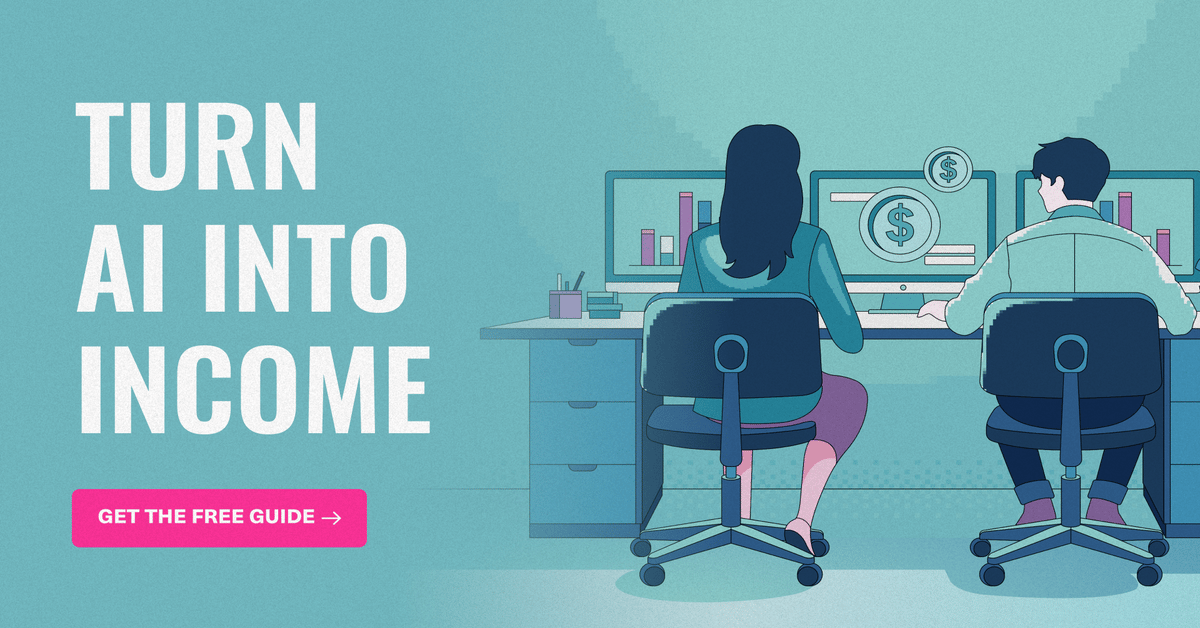- Generative AI Art
- Posts
- Claude's coding assistant is 84% less annoying
Claude's coding assistant is 84% less annoying
PLUS: Why AI is hurting Wikipedia's traffic and Sora's new Hollywood deal
Anthropic just made its AI coding assistant significantly less bothersome for developers. A new update for Claude Code introduces a secure sandboxing environment that dramatically cuts down on the constant need for user approvals.
By open-sourcing the underlying technology, Anthropic is encouraging a new standard for security and user experience. Will this push competitors like GitHub Copilot to adopt similar, more autonomous approaches to AI-powered development?
Today in AI:
Claude's new sandboxed coding tool
Why AI summaries are hurting Wikipedia
Sora strikes a deal with Hollywood
PRESENTED BY THE MINDSTREAM
Turn AI Into Your Income Stream
The AI economy is booming, and smart entrepreneurs are already profiting. Subscribe to Mindstream and get instant access to 200+ proven strategies to monetize AI tools like ChatGPT, Midjourney, and more. From content creation to automation services, discover actionable ways to build your AI-powered income. No coding required, just practical strategies that work.
What’s new? Anthropic just launched Claude Code on the web, a new tool that lets you run coding tasks directly in a browser using a secure sandboxing environment.
What matters?
The new approach tackles "approval fatigue" by creating a secure sandbox for code to run in, cutting down annoying permission prompts by 84%.
Instead of constant pop-ups, you define boundaries upfront through a new sandboxing approach that isolates filesystems and network connections to keep your main system safe.
To encourage wider adoption, Anthropic has open-sourced the underlying sandboxing technology for any developer to use.
Why it matters?
This change makes AI coding assistants genuinely more autonomous and useful without forcing users to constantly approve actions. By providing the code to the community, Anthropic is paving the way for a new standard in security and usability across all AI development tools.
PROMPT STATION
What’s new? The Wikimedia Foundation released a new report indicating that human page views on Wikipedia have dropped by 8% year-over-year, attributing the decline to AI-powered search results and the rise of social video for information seeking.
What matters?
The traffic decline was identified after an update to Wikipedia's bot-detection systems revealed that unusually high traffic in previous months was not from human users.
Search engines are increasingly using generative AI answers that pull from sites like Wikipedia, though Google has disputed the claim that this practice reduces traffic to source websites.
The foundation warns this trend poses a significant risk, as fewer site visits could lead to fewer volunteer editors and donors, threatening the encyclopedia's long-term health and content creation.
Why it matters?
This highlights a growing tension where AI models depend on human-curated knowledge from platforms like Wikipedia to function. Yet, the very tools built with this data may be cutting off the traffic and community support needed to sustain them.
PRESENTED BY THE 1440 MEDIA
Join over 4 million Americans who start their day with 1440 – your daily digest for unbiased, fact-centric news. From politics to sports, we cover it all by analyzing over 100 sources. Our concise, 5-minute read lands in your inbox each morning at no cost. Experience news without the noise; let 1440 help you make up your own mind. Sign up now and invite your friends and family to be part of the informed.
What’s new? OpenAI is partnering with SAG-AFTRA and major Hollywood agencies to add stronger guardrails to its Sora 2 video generator following complaints over unauthorized celebrity likenesses.
What matters?
The collaboration follows actor Bryan Cranston discovering unauthorized videos of himself on Sora 2, which OpenAI called unintentional generations.
The joint statement also voiced strong support for the NO FAKES Act, advocating for federal protections against unauthorized AI replicas of performers.
SAG-AFTRA President Sean Astin stressed that explicit opt-ins are the only way forward for AI companies to ethically use a performer's likeness.
Why it matters?
This move signals a critical test for generative video platforms, balancing viral appeal with the legal and ethical necessity of consent. Establishing clear partnerships with creative unions is becoming essential for AI companies to achieve mainstream adoption and avoid legal battles.
Everything else in AI
Replacement.AI launched as a satirical website billing itself as "the only honest AI company" with a darkly comedic mission to make "humans no longer necessary."
MBZUAI unveiled K2 Think, a 32B parameter open-source reasoning model that claims to deliver performance on par with flagship models up to 20 times its size.
Anthropic launched Claude Skills, a new feature that allows the model to interact with external tools and APIs, significantly expanding its capabilities as a general-purpose agent. Collapse
Essential AI Guides - Reading List:
Let us know!
What did you think of today's email?Before you go, please give your feedback to help us improve the content for you! |
Work with us
Reach 100k+ engaged Tech Professionals, Engineers, Managers and decision makers. Join brands like MorningBrew, HubSpot, Prezi, Nike, Ahref, Roku, 1440, Superhuman, and others in showcasing your product to our audience. Get in touch now →



